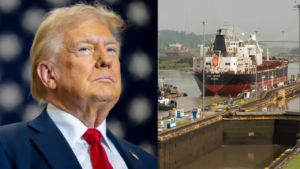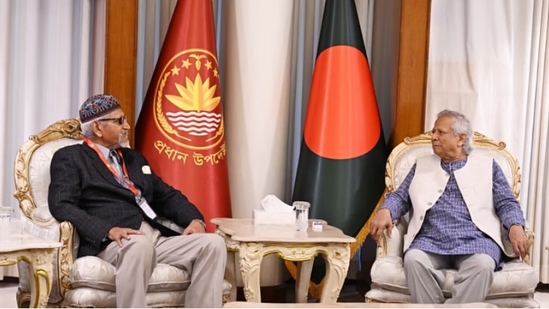Introduction
In a major financial relief move, Pakistan has signed an agreement with Saudi Arabia to defer a $1.2 billion payment for oil imports by one year. This agreement, signed with the Saudi Fund for Development (SFD), is expected to provide much-needed economic breathing space for Pakistan, which is grappling with a balance of payments crisis, inflation, and currency depreciation.
The deferral of payments will allow Pakistan to continue receiving petroleum supplies without immediate financial strain. However, while this move eases short-term liquidity pressures, it also raises critical questions about the long-term sustainability of Pakistan’s economic policies. In this article, we address five key questions surrounding this agreement and its potential impact on Pakistan’s financial stability and bilateral relations with Saudi Arabia.
1. Why Did Pakistan Seek This Oil Payment Deferral?
Pakistan’s economy has been struggling with multiple financial and structural issues, prompting the government to seek financial relief from international allies. The key reasons for requesting this deferral include:
a) Persistent Balance of Payments Crisis
Pakistan has been running a significant trade deficit, with foreign reserves depleting rapidly. The country’s import bill far exceeds its export earnings, creating a persistent balance of payments crisis.
b) Depreciation of the Pakistani Rupee
The Pakistani rupee has been under severe pressure, leading to increased import costs. Given that oil is a critical import, paying upfront would have put additional stress on the currency.
c) Inflation and Domestic Fuel Prices
Inflation in Pakistan has remained high, with fuel prices directly impacting the cost of living. Deferring the payment allows the government to maintain subsidies or price stability without immediate financial outflows.
d) Saudi Arabia’s History of Economic Assistance
Saudi Arabia has been a consistent financial supporter of Pakistan, providing oil on deferred payments multiple times in the past. This deferral follows a similar pattern of economic cooperation between the two nations.
2. What Are the Terms of the Agreement?
The agreement, signed on February 3, 2025, between the Economic Affairs Division of Pakistan and the Saudi Fund for Development (SFD), includes the following key terms:
- The $1.2 billion payment for oil imports will be deferred for one year.
- The deal covers petroleum products and crude oil supplied by Saudi Aramco.
- No interest or concessional terms were disclosed, but previous deferral agreements with Saudi Arabia have included favorable repayment conditions.
- The agreement will be reviewed annually to assess Pakistan’s economic situation and determine the feasibility of further extensions.
While this agreement provides temporary relief, it does not eliminate the financial obligations Pakistan must eventually fulfill.
3. How Will This Impact Pakistan’s Economy?
The immediate benefits of this agreement are clear, but what about its long-term implications? Let’s explore how the deferral will affect Pakistan’s economy in different ways:
a) Short-Term Benefits
- Eases Foreign Exchange Pressure: With the payment deferred, Pakistan can conserve its foreign reserves, which are currently under stress.
- Stabilizes Fuel Prices: The government may use this opportunity to stabilize domestic fuel prices, preventing further inflationary spikes.
- Improves Market Sentiment: Financial relief from Saudi Arabia signals confidence in Pakistan’s ability to manage its economic challenges, potentially improving investor sentiment.
b) Long-Term Risks
- Debt Dependency: Repeated reliance on deferred payments and external aid raises concerns about Pakistan’s ability to sustain its economy without continuous financial support.
- Future Payment Burden: While the deferral provides short-term relief, Pakistan must still repay the $1.2 billion, adding to future financial obligations.
- Geopolitical Leverage: Saudi Arabia’s ongoing support strengthens its influence over Pakistan’s economic and foreign policy decisions.
4. What Does This Mean for Pakistan-Saudi Arabia Relations?
Pakistan and Saudi Arabia share a strong diplomatic and economic relationship. This deferral agreement is another example of Riyadh’s support for Islamabad, but what does it mean for their broader relations?
a) Strengthened Bilateral Ties
Saudi Arabia has historically supported Pakistan through direct financial assistance, deferred oil payments, and investment commitments. This agreement reaffirms the kingdom’s commitment to Pakistan’s stability.
b) Future Investments and Trade Agreements
With Saudi Arabia increasing its investments in Pakistan, particularly in energy and infrastructure, this deal could pave the way for additional trade agreements, including expanded energy cooperation.
c) Strategic Influence
Pakistan’s financial dependence on Saudi Arabia increases the latter’s strategic influence over Islamabad’s policies. While cooperation benefits both nations, some analysts warn that Pakistan must balance its diplomatic commitments carefully, especially considering its ties with other regional powers like China and Iran.
5. What Are the Next Steps for Pakistan’s Economic Strategy?
The deferral agreement provides temporary relief, but Pakistan must implement structural reforms to prevent further reliance on external financial support. Here are the key areas where Pakistan needs to focus:
a) Boosting Exports and Reducing Trade Deficit
Pakistan must strengthen its manufacturing and agricultural sectors to increase exports. A more balanced trade policy can help reduce reliance on external debt and aid.
b) Diversifying Energy Sources
While Saudi oil remains crucial, Pakistan must explore alternative energy sources, including domestic production and renewable energy projects, to reduce dependence on imports.
c) Strengthening Economic Reforms
The government should focus on fiscal discipline, tax collection improvements, and reducing unnecessary expenditures to enhance financial sustainability.
d) Expanding Regional Trade Partnerships
Pakistan can benefit from stronger trade ties with China, Central Asia, and Gulf nations, reducing its vulnerability to individual countries’ financial assistance.
Conclusion
The $1.2 billion oil payment deferral from Saudi Arabia provides much-needed relief for Pakistan’s struggling economy, but it also raises critical questions about the country’s long-term financial strategy. While this agreement helps stabilize the current economic situation, Pakistan must take proactive steps to strengthen its economic foundations, reduce external dependencies, and implement sustainable financial policies.
As Islamabad navigates this complex economic landscape, the focus should not only be on securing short-term relief but also on ensuring long-term resilience and growth. The real challenge lies in transforming this temporary reprieve into lasting economic stability. The coming months will reveal whether Pakistan can leverage this agreement effectively or if it will continue to rely on external support to manage its financial crises.
Also Read-
3. 4 Major Questions After Trump Pauses Tariffs on Mexico: What’s Next for North American Trade?




















One thought on “5 Key Questions on Pakistan’s $1.2 Billion Saudi Oil Payment Deferral: What Does It Mean for the Economy?”